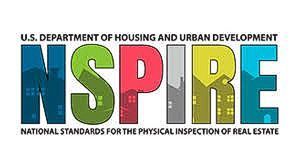The Benefits of NSPIRE Inspection for Affordable Housing
The Benefits of NSPIRE Inspection for Affordable Housing and Property Management

The National Standards for the Physical Inspection of Real Estate (NSPIRE) is a game-changer for affordable housing and property management. Developed by the U.S. Department of Housing and Urban Development (HUD), NSPIRE ensures that federally assisted housing meets high safety, health, and maintenance standards.
At REAC NSPIRE Consulting, we help property owners, managers, and housing authorities navigate these inspections with confidence. Understanding the benefits of NSPIRE can transform how affordable housing communities operate, ensuring better living conditions and long-term success.
Key Benefits of NSPIRE Inspections
1. Improved Living Conditions for Residents
NSPIRE focuses on habitability, safety, and quality of life by setting stricter standards for housing conditions.
- Ensures proper heating, cooling, and ventilation
- Requires functional plumbing and electrical systems
- Reduces hazards like mold, lead-based paint, and pest infestations
- Enhances fire safety with smoke and carbon monoxide detectors
🔹 Impact: Healthier, safer homes lead to higher tenant satisfaction and retention.
2. Proactive Maintenance Reduces Costs
With NSPIRE's emphasis on ongoing maintenance, property owners can identify and fix issues before they become costly problems.
- Regular inspections encourage preventive maintenance
- Reduces emergency repairs and unexpected expenses
- Extends the lifespan of building components like HVAC, plumbing, and roofing
🔹 Impact: Property managers can budget more efficiently and reduce costly last-minute repairs.
3. Increased Compliance with HUD and Local Regulations
Failing NSPIRE inspections can lead to funding loss, penalties, or even disqualification from HUD programs. Staying compliant ensures continued access to financial assistance and benefits.
- Helps properties maintain eligibility for federal funding
- Reduces legal and financial risks associated with non-compliance
- Ensures adherence to local building codes and safety laws
🔹 Impact: Avoid fines and penalties while ensuring access to vital HUD funding.
4. Boosts Property Value and Marketability
Properties that meet NSPIRE standards attract more tenants and potential investors.
- Well-maintained buildings have higher property value
- Good inspection scores enhance reputation and credibility
- Attracts responsible tenants looking for quality affordable housing
🔹 Impact: Higher occupancy rates and a stronger return on investment for property owners.
5. Streamlined Inspection Process
NSPIRE simplifies the inspection process with:
- Consistent scoring criteria across all HUD-assisted properties
- Fewer surprise inspections, giving property managers time to prepare
- A focus on the most critical health and safety issues rather than minor cosmetic flaws
🔹 Impact: Property managers can better anticipate and prepare for inspections, reducing stress and administrative burden.
6. Encourages Sustainable and Energy-Efficient Practices
NSPIRE aligns with modern sustainability efforts by:
- Promoting energy-efficient systems like LED lighting and smart thermostats
- Requiring proper waste management and pest control
- Encouraging water conservation measures like low-flow fixtures
🔹 Impact: Reducing energy consumption lowers utility costs and contributes to environmental sustainability.
How REAC NSPIRE Consulting Can Help
Navigating NSPIRE compliance can be complex, but REAC NSPIRE Consulting is here to help!
- Pre-Inspection Assessments – Identify potential violations before your official inspection
- Training for Property Managers – Learn best practices for NSPIRE compliance
- Ongoing Support & Guidance – Stay ahead of HUD regulations and maintain top-quality housing
The NSPIRE inspection framework is designed to improve housing quality, reduce costs, and streamline compliance for property managers and owners. By proactively embracing NSPIRE standards, affordable housing providers can create safer, more sustainable communities while maintaining financial stability.








